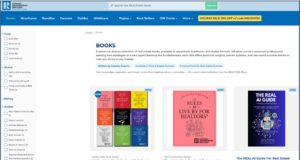Urban Land Institute Experts Identify Priorities for Future Development Catalyzed by Proposed North-South Rail Link in Boston
WASHINGTON (January 30, 2018) – (RealEstateRama) — An expert panel of real estate and land use professionals convened in Boston by the Urban Land Institute (ULI) has identified key priorities to guide future real estate development that could be catalyzed by a proposed underground rail line that will link two major transit hubs—North Station and South Station—and unify two currently separate commuter rail systems.

The priorities identified by the panel include:
- Strengthening links between housing and job centers;
- Preserving high-value land in the urban core for real estate development;
- Increasing social equity by building affordable housing at transit nodes and improving rail and mobility access for underserved communities;
- Developing transit-oriented development area plans for stations along all commuter rail and “T” subway lines; and
- Incorporating climate resilience into future investments given Boston’s proximity to the coast and threats from sea-level rise.
The panel, convened through ULI’s advisory services program, was comprised of nationally known land use professionals representing all aspects of urban development and design. Panelists emphasized that while Boston’s recent unprecedented job growth has unleashed a boom in commercial development, the region’s housing supply has not kept pace, creating an affordability crisis and enclaves of extreme wealth and poverty. The proposed North-South Rail Link that will lead to a unified and expanded commuter rail system for Greater Boston has the potential to meet current and future housing demand, address income inequality, and foster economic competitiveness of the region, panel members said.
“Boston’s commuter rail and transit system is a unique asset that offers the region a strategic advantage over other metropolitan areas, both nationally and globally,” said ULI leader and panel chairman Marilee Utter, president of Citiventure Associates LLC in Denver. “Yet, the region’s ability to maintain its quality of life and compete globally is seriously at risk if it does not take a comprehensive approach to a unified rail system that leverages the tools of real estate development, public/private partnerships, and transit-oriented development to achieve these goals.”
The panel, which visited Boston in October 2017, was sponsored by the Massachusetts Competitive Partnership in collaboration with the City of Boston, several communities in the greater Boston region, and U.S. Representative Seth Moulton (D-Massachusetts). The group analyzed local market conditions and the implications for real estate on several sites that would be transformed by the proposed North-South Rail Link, including the U.S. Postal Services Fort Point Station, Widett Circle, and a proposed expansion of South Station.
In drafting its recommendations, the panel considered such factors as optimal use for these sites, connections to adjacent neighborhoods and nearby “edge” cities and towns, and alignment with Boston’s goals and vision for future growth. During its week-long engagement, panelists toured the sites and spent two full days interviewing dozens of stakeholders from the public and private sector.
In addition to Utter, panelists included: Rick Krochalis, commissioner, Seattle Design Commission, Seattle; Robert Ravelli, director, Contemporary Solutions, London; Michael Reynolds, principal, The Concord Group, Newport Beach, California; Stan Wall, partner, HR&A Advisors, Washington, D.C.; Theresa Ward, deputy county executive/commissioner, Suffolk County Department of Economic Development and Planning, Hauppauge, New York; Mary Campbell, associate vice chancellor for real estate, Washington University, St. Louis, Missouri; and Stephen Whitehouse, partner at Starr Whitehouse Landscape Architects and Planners, New York City.
For more than 70 years, the ULI advisory services program has assembled experts in the fields of real estate and urban development to participate on panels worldwide, offering recommendations for complex planning and development projects, programs and policies. Panels have developed more than 700 studies for a broad range of land uses ranging from waterfront properties to inner-city retail.
According to Thomas Eitler, senior vice president of ULI’s advisory services program, the strength of the program lies in ULI’s unique ability to draw on the substantial knowledge of its 40,000-plus members, including land developers, engineers, public officials, academics, lenders, architects, planners and urban designers. “The independent views of the panelists bring a fresh perspective to the land use challenge,” Eitler said. “The advisory services program is about offering creative, innovative approaches to community building.”
Past sponsors of ULI advisory service panels include: federal, state and local government agencies; regional councils of government; chambers of commerce; redevelopment authorities; private developers and property owners; community development corporations; lenders; historic preservation groups; non-profit community groups; environmental organizations and economic development agencies.
About the Urban Land Institute
The Urban Land Institute is a nonprofit education and research institute supported by its members. Its mission is to provide leadership in the responsible use of land and in creating and sustaining thriving communities worldwide. Established in 1936, the institute has more than 40,000 members worldwide representing all aspects of land use and development disciplines. For more information, please visit uli.org or follow us on Twitter, Facebook, LinkedIn, andInstagram.
contact: Trisha Riggs at 202-624-7086;














